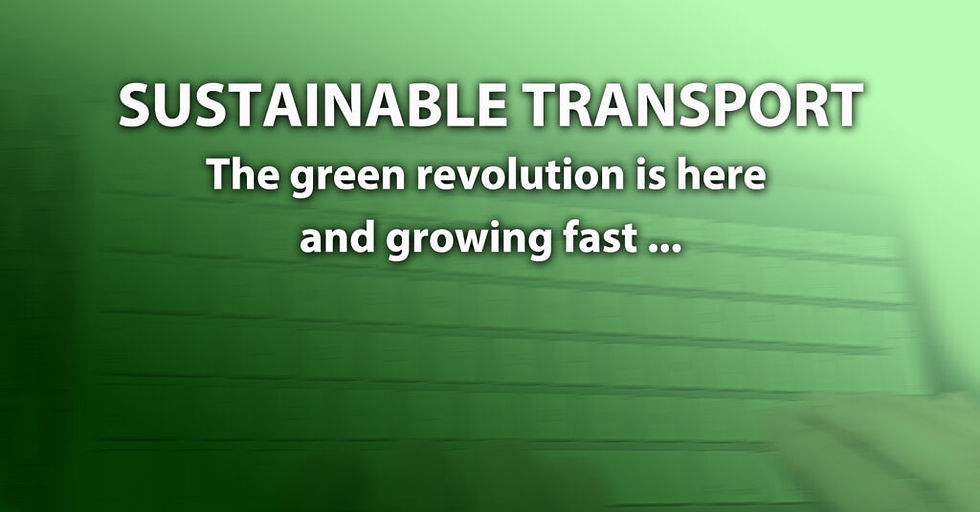A sustainable transport revolution is underway across the globe and nowhere more so than here in the UK. Wherever you stand on the climate change debate, there’s no debate about the fact that fossil fuels are on the way out and green alternatives are on the way in – and fast. In the past week alone, Jaguar announced that it would produce only all-electric vehicles in the UK by 2025 and Ford is to join them by 2030. Many companies are even now measuring their climate change impacts as part of their sustainability agendas and many have committed to become carbon neutral in the near future – some, such as Microsoft, are even set to become carbon negative in the not too distant future.
The government has already begun the process of moving to a sustainable transport future with initiatives like the Low Emission Zone (LEZ) in London, which is setting even tougher regulations for HGVs on 1 March this year. Also, Bristol is set to become the first UK city to ban diesel cars in a bid to improve air quality where, under current plans, all privately owned diesel vehicles will be barred from entering a clean air zone in the city centre every day between 7am and 3pm by March 2021. Clean Air Zones will launch in Bath on 15 March 2021 and Birmingham on 1 June 2021. Already, low-emission vehicles are eligible for a government plug-in grant. However these initiatives are only the thin edge of the wedge and considerably more regulations are in the offing.

This will make commercial vehicle operators’ lives considerably more complex and, apart from the obvious migration process to sustainable vehicle fleets, operators will need to manage all the ramifications of the changes to come in a highly sophisticated manner.
Fortunately, using proven modern transport management systems (TMSs) that are available today, operators should be able easily to negotiate any new and developing regulatory frameworks, including reporting carbon usage to the appropriate authorities according to existing, and any yet-to-be-published, regulations.
The best TMSs operate on a Software-as-a-Service (SaaS) basis that gives transport operators the ability to configure their TMSs to incorporate sustainable transport data management requirements (on a cost-effective basis) – basically enabling them to future-proof their sustainable transport needs.
If your TMS is not SaaS-based and therefore not proof against an irrefutable future in sustainable transport, please ask Bashir Khan how Deltion’s CarrierNet TMS can solve that problem for you.
Comentários